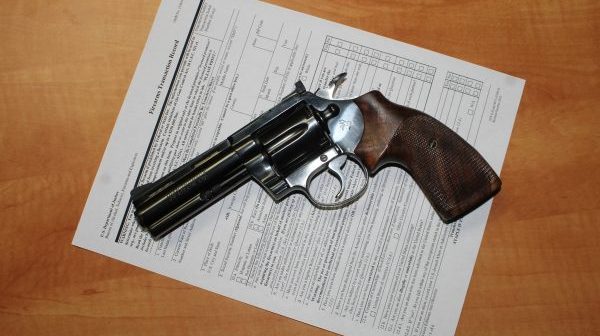
A federal judge in North Carolina will allow plaintiffs in a case challenging a suspension of pistol purchase permit applications last year to move ahead in pursuit of damage claims and associated claims for declaratory relief and attorney’s fees, according to the Second Amendment Foundation.
The case involved a county sheriff’s decision to suspend accepting PPP applications after Gov. Roy Cooper declared an emergency. It was not a rare incident, as other jurisdictions also suspended taking applications for concealed carry permits and licenses. In some municipalities, the suspension is still in effect nearly a year after an emergency was declared.
But SAF founder and Executive Vice President Alan Gottlieb made a comment that just might be considered a warning: “We’re glad (the plaintiff) was able to finally get her PPP,” he noted, “but that wasn’t the point. The constitution doesn’t take a day off, even in a declared state of emergency. And neither do we.”
Out in Washington State, for example, some law enforcement agencies still have their application process on hole, despite the fact there is no provision in the state concealed carry statute that allows it, especially for 11 months.
Here’s what the Washington statute says:
“The chief of police of a municipality or the sheriff of a county shall within thirty days after the filing of an application of any person, issue a license to such person to carry a pistol concealed on his or her person within this state for five years from date of issue, for the purposes of protection or while engaged in business, sport, or while traveling. However, if the applicant does not have a valid permanent Washington driver’s license or Washington state identification card or has not been a resident of the state for the previous consecutive ninety days, the issuing authority shall have up to sixty days after the filing of the application to issue a license. The issuing authority shall not refuse to accept completed applications for concealed pistol licenses during regular business hours.” (Emphasis added.)
In the North Carolina case, SAF is joined by Grass Roots North Carolina and the Firearms Policy Coalition, with the case named for the primary plaintiff, Kelly Stafford. While she subsequently was able to make an application, the point Gottlieb was making is at the heart of the case. The constitution doesn’t take a holiday, nor does it call in sick.
MEANWHILE, Montana Gov. Greg Gianforte has signed legislation doing away with so-called “gun-free zones” and expanding places where firearms may be carried, including college and university campuses, and the Capitol in Helena, according to Ammoland News.
Gary Marbut, president of the Montana Shooting Sports Association, led the charge to pass House Bill 102, and he credited grassroots activist MSSA members across the state for their hard work over the course of several years to make it happen. Marbut was recognized by the Citizens Committee for the Right to Keep and Bear Arms in December as the “Grassroots Activist of the Year” for 2020.
According to Ammoland and the Helena Independent Record, HB 102 covers campus carry, restaurant and bar carry, and for permit holders to carry inside state and local government buildings, and perhaps most importantly of all, the new law takes effect immediately, except for campus carry, which goes into effect this summer.
In an interview with Ammoland, Marbut explained, “The general purpose of HB 102 is to eliminate dangerous ‘gun free zones,’ those places where only criminals would be armed because of a government prohibition that only law-abiding gun owners would obey. HB 102 has four major elements: Permitless carry, campus carry, restaurant and bar carry, and enhancement of existing concealed weapon permits (CWP), plus some minor elements.”